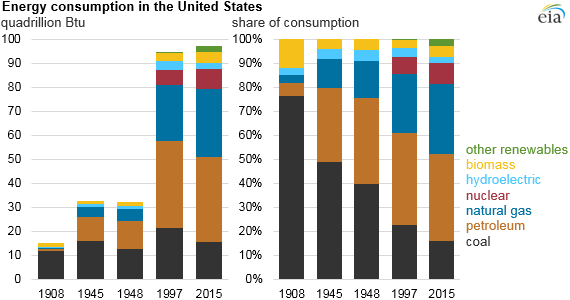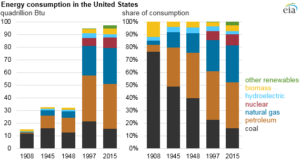But I have more.
FROM 30 YEARS TO 10 MINUTES
I also have the ability to search for almost anything. I can type a few words into Google and find the prices of whale oil in the 19th century.
Just think about that for a second. Within the span of about 30 years we took a process that would involve me doing days of research in a library, then hours of editing and writing, submitting the documentation, editing it again, sending it to press, putting it out for delivery and getting it into your hands… to a process that takes a few minutes.
That is staggering progress.
CREATIVITY IS SAFE… OR IS IT?
But it’s just the beginning.
Companies like Automated Insights promise to push the envelope such that most articles don’t even need the human to do any of the work. Actually, this is already happening, if you Google “This story was generated by automated insights” you will find press releases like this one which were done completely without human interaction.
Ok… you might not be impressed because obviously creativity is well off in the future. If you think so read this poem and be honest about how easily you can tell it was written by AI.
Flow Machines is a project which is attempting to have AI compose music. I think this area still needs a lot of advancement and the criticism is that all it REALLY does is look at millions of different types of music to look for certain patterns, then puts them into different combinations and tries to find ones that seem to “work.” But really… if we look at the evolution of classical music from Bach to Rachmaninoff, aren’t they more or less doing the same thing? Borrowing from previous structures, weaving in the local folk tunes and then discovering new forms that seem to resonate in our minds when we hear them? They just do it slowly and clumsily and we like to think of that pain as being critical to the process… well… maybe it is, maybe not.
WHERE TO?
I think all this stuff is neat and it makes for interesting headlines, but where is it going?
To answer that question I want to take us back many thousands of years to when humans were first getting started.
Imagine a time when the sky was pitch black at night and the eerie animal sounds echoing in the blackness mixed and mingled with our minds to create the early myths and dreams. During the day we would have to spend nearly all our energy on survival. We had to hunt by hand, tear apart the meat, create the fire, cook the meat and eat it. We had to pick the berries and the fruit (after finding or growing it). We had to till the soil, find and carry the water, build the shelters… all by hand. The work was relentless and the prospects for survival were dubious.
Over time we learned that some of this work could be improved by making use of technology. We learned that some animals could be tamed, we learned that round trees could be used to make moving heavy stone easier. We built aqueducts to carry our water in and sewers to carry our waste out. We learned about boiling water to kill germs and we learned that the cure for bacteria was mold.
Up until very recently the advances in technology have been our aids. Our relationship with technology was primarily the technology doing and us telling… doing it better, cheaper, safer, faster.
What we have today is a bit different.
DRIVING
When I step into my car and go somewhere the first thing I do is type the address into my GPS. The car (or phone) usually quickly tells me the directions that I should follow to go there. In essence the relationship is that the car is telling ME what to do and I am merely the executor of it’s commands. Now you might say… “BS Hermann, YOU told it where YOU wanted to go.”
But did I? If I want to figure out WHERE I want to go, how do I do that? Well, I once again go to Google and type in something like “indoor activities for children” click on maps and boom; a bunch of things to choose from. I could say that *I* originally decided that indoor children’s activities is what *I* wanted to do and that was the real active choice… the rest was the computer passively aiding me… but I’m not so sure our relationship with technology is so clear cut.
My choices are shaped by technology to an alarming degree. With a bit of information about my tastes and preferences AI can predict which things I like and dislike. Indeed this is the basis behind most of the consumption technologies in the world today. Removing human biases from the evaluation process proves to improve the predictive results of what people will “like.”
AI SAYS – YOU DO
I believe this will be an underlying trend over the next few decades. The new advances in mechanization will be computers telling us what to do and we will take on the roles of executors. I think stories like Watson diagnosing cancer in a particular case in Japan better than doctors; will become more frequent.
It’s worth digging in a bit here to understand WHY Watson was able to do this.
Diagnosing cancer is a very complex problem. Symptoms can look like other diseases, the patient’s genetics and history are significant, similar cases can be helpful in finding patters and the amount of data coming from research is staggering. It’s impossible for a human to have all that information in their minds and then process it in an efficient way. Previously AI would “brute force” it’s way to finding solutions to puzzles with known complexity.
Watson and the new AI technology is doing something very different. It is able to learn how to pattern match based on looking at millions of units of information across different dimensions and then figuring out which answer has the highest probability of being correct. It can then have that probability tested in the real world and generate data that it can use to improve it’s diagnosis in the future. This is what human oncologists do… but they are much slower and less accurate. Of course, humans are creative and have “instincts” and can thus short cut many potential possibilities that are “silly.” But Watson and AI like it can learn those as well… without having the biases and emotional limitations. They don’t need sleep or get hungry or have arguments with their spouses. Of course, they probably COULD if that helped improve diagnostic outcomes.
If you think this is limited to using the past to understand the present… that is only the beginning. Back in 2009, an AI system use basic math and huge data sets to “discover” the laws of motion.T
oday, there is lots of research into prediction. For example, this AI tries to generate video that will predict what happens next. In this system there is a so called “adversarial” process in place. One AI attempts to predict what will happen and the other tries to determine if it looks real or fake. By taking data of what really happened both the prediction AI and the evaluation AI can improve their accuracy… all without any human intervention.
FAST FORWARD
Let’s really stretch possibilities here for a second.
With this kind of massive data set, adversarial networks, random tinkering, complete spectrum analysis (remember, AI can see EVERYTHING not just the limited colors we can see) what is possible?
Well… maybe AI can discover a cure for diseases. By having access to humans to experiment on, past data about a disease and access to unlimited chemicals to mix and match; it’s entirely possible.
AI could discover new recipes. By mixing all the possible ingredients and comparing that against data sets of what flavors come from where, what mixes are preferred and how they interact; AI could one day generate recipes… oh wait… that already happened, you can pick it up on Amazon here.
Perhaps AI could create the next breakthrough in computers. Or figure out how to make our screens bigger, more flexible, more durable.
Maybe it could help us figure out how to explore space or break through the speed of light.
Who knows.
BUT WHAT ABOUT ME?
Indeed, when compared to creating a new digital device or breaking Einstein’s laws of physics, writing this article seems trivial. It seems to me that in the coming decades there may be little work in content creation by humans. Perhaps I would need to create a theme or a series of interests so that the AI has something to start with, but I can imagine it might be able to generate those on it’s own as well.
What *I* have to do is consume the content and render my verdict. Do I “like” it or “ignore” it. Based on the the AI can learn what humans like me enjoy and what we don’t. But really… that’s kind of what Bloggers do today anyway… just much more slowly and less accurately.
The role of humans in the centuries to come may very well be consumers and products. In order for AI to advance it needs to have an external reality to bounce things off. That is, until it figures out that improving lives of humans might not be the best goal. As long as AI is focused on making our lives, better, easier, faster, safer… I can imagine a world where humans are essentially products which AI producers trade and compete for. We would basically be real world sims.
If AI eventually correctly interprets evolutionary history, it’s entirely possible it will quite rationally conclude that humans are just another species in the long chain of life over the years. While the extinction of Dinosaurs was a boon for Mammals, I’m not sure the Dinosaurs saw things the same way. Perhaps AI spending all of the worlds resources to keep humans satisfied and safe will act as a limitation on evolution. The next logical step is to just get rid of that problem altogether… in the same way that we have wiped out many species that got in our way.
It’s a scary thought, and not as far off in terms of science fiction as we would like to think. We always like to imagine the future in terms of how *WE* will be part of it, but it’s equally, or perhaps more, likely that the future will be without us at all.
*This article was not generated by AI, yet….*

